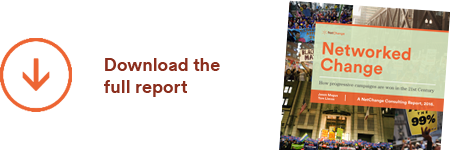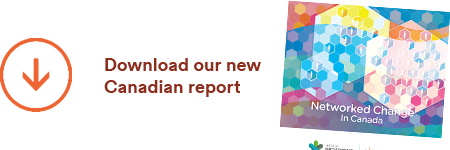In my studies in Communications recently, I have come across some interesting theories on the social and cultural implications of media, and specifically the social impact of the internet. Most recently I’ve come across pessimistic theory that media technology dissociate us from public space and involvement, into a simulated world of "hyperreal" information.
In my morning read today I stumbled across an interesting paper authored jointly through multiple universities including MIT and the University of Toronto. The paper is entitled: The Social Affordances of the Internet for Networked Individualism and is an interesting and meaty read exploring the concerns over consequences of the internet. The paper was written in 2003 and somewhat predates the web2.0 social network boom, and so is also interesting to look at from its predictive context.
The paper outlines the three commonly held theories of the effects of the internet on community:
- The internet decreases community by facilitating global communication at the expense of local involvement, and results in more individual isolation
- the internet transforms community by changing communication and altering the structure of social groups.
- The internet supplements community by offering different ways to communicate with individuals, and facilitates an increase in community
For all of us that work as internet professionals, I am happy to report that the findings are largely positive consequences on community. The cross cultural study looks to isolate those who are moderate to heavy internet users from those who are not, and gain insight from the differences. Some of the findings were that rather than isolate people, the internet users reported knowing a greater number of local neighbours, as well stronger ties in relationships that span national and international distances:
"Thus, the impact of computer-mediated communication will be that people have larger-scale social networks: more people, more communication, and more rapid communication. This should allow information and perhaps knowledge to diffuse more rapidly."
Other interesting tidbits point to historical forces that have changed community that predate the internet. Land-use changes separating workplaces and homes decreased contact between colleagues, while increased commuting travel time ate into community networking time. However, the widespread use and decrease in price of air and ground transportation led to better contact and relationships with distance removed family and friends.
There are some interesting conclusions drawn from the report, that play favourably for those who are trying foster civic engagement through the internet means:
"The paradox is that even as they are connecting globally, they (networked individuals) are well placed to be aware of what is happening in their immediate surroundings … The wired residents … were better equipped to be civically involved. The wired network reduced the cost and increased the speed of community organization."
There are also references made to the way that relationships are altered by digital communications. Relationships and associations become more fluid. People are less likely to stay involved and connected within only small circles, but belong to many in a much looser and less formal structure. The conclusion of both my post, and the paper, is my favourite and the most fitting regarding change:
"To cope with and serve such a networked society, there will be a need for new, fluid forms of government and democracy. To date, such needs are scarcely met, online or offline."









